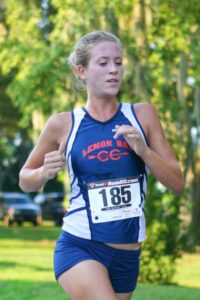- Calls to this hotline are currently being directed to Within Health or Eating Disorder Solutions
- Representatives are standing by 24/7 to help answer your questions
- All calls are confidential and HIPAA compliant
- There is no obligation or cost to call
- Eating Disorder Hope does not receive any commissions or fees dependent upon which provider you select
- Additional treatment providers are located on our directory or samhsa.gov
Is Female Athlete Triad Syndrome a Dangerous Health Issue?
Female athletes of all ages face unique challenges when it comes to maintaining their health and well-being. While participation in exercise can be beneficial in both the long and short term, female athletes who are extreme in their sports competition may be subject to worsening health consequences. Taking athleticism to the extreme by engaging in dangerous behaviors, like restricting overall caloric intake, over-exercising, etc., can be potentially damaging to the body.
What is Female Athlete Triad Syndrome?
The Female Athlete Triad is a combination of three conditions that are connected with over-exercising in athletic training:
- Amenorrhea (abnormal absence of menstruation)
- Osteoporosis (disease in which bones become fragile and more likely to fracture)
- Disordered eating [1]
Female athletes with disordered eating may engage in a range of harmful eating behaviors, including restricting overall food intake, cutting out complete food groups, bingeing and purging, fasting and more.
While some athletes may not meet the diagnostic criteria for an eating disorder, such as anorexia or bulimia nervosa, disordered eating behaviors will be part of the female athlete triad syndrome.
This condition is commonly seen in female athletes participating in sports that stress low body weight or leanness, such as:
- Gymnastics
- Ballet
- Figure skating
- Long-distance running[2]

According to one study, 75 percent of female college gymnasts who were told by their coaches that they were overweight resorted to pathogenic behaviors to control their weight [3].
Risk factors such as these can increase the chances that a woman may develop the female athlete triad, and because of the lifelong health issues that result from this illness, greater awareness is needed.
What Are the Symptoms of Female Athlete Triad?
Parents, coaches, and mentors alike can be particularly influential in the lives of the athletes with whom they are involved. Being able to recognize the symptoms of the female athlete triad is crucial for early treatment and for prevention of fatal consequences. The following are key symptoms to be aware of in female athletes with the triad syndrome:
- Constantly feeling fatigued, lethargic
- Difficulty sleeping, insomnia
- Irregular or absent menstrual cycles
- Frequent restriction of food intake
- Weight loss
- Frequent injuries, such as muscle strains or stress fractures
- Sensitivity to cold
- Preoccupation with food and weight
If the female athlete triad is suspected, it is important that appropriate treatment is sought to prevent worsening symptoms and to ensure healing takes place. This would include a multidisciplinary approach that involves the care of a physician, dietitian, and mental health provider.
Treatment Options
Treatment may include nutritional counseling, pharmacologic involvement, and medical management by a physician. Appropriate interventions can prevent irreversible bone mass loss, promote the resumption of normal menstruation and prevent a fatality from eating disorders.
In some instances, an athlete may need to take a temporary break from her sport in order to allow the necessary time for healing. While this is not always the case, many athletes may need to give themselves sufficient time to recuperate from the damage that may have occurred due to over-exercising and/or training.
As women today have greater opportunities to participate and compete in various sports, it is essential to understand the physical, emotional, and mental challenges they may face on their athletic journey. Being aware of the female athlete triad and associated risks and symptoms can be helpful to parents, coaches and mentors alike who participate in these athletes’ lives.
Education Is Key


Jacquelyn has a Bachelor of Science in Human Services degree from The University of Phoenix and a Masters degree in Counseling/Psychology, from Capella University. She has extensive experience in the eating disorder field including advanced education in psychology, participation and contributions to additional eating disorder groups, symposiums, and professional associations. She is a member of the National Eating Disorder Association (NEDA), Academy of Eating Disorders (AED), the Eating Disorders Coalition (EDC) and the International Association of Eating Disorder Professionals (iaedp).
Jacquelyn enjoys art, working out, walking her golden retriever “Cowgirl”, reading, painting and time with family.
Although Eating Disorder Hope was founded by Jacquelyn Ekern, this organization would not be possible without support from our generous sponsors.

Crystal is a Masters-level Registered Dietitian Nutritionist (RDN) with a specialty focus in eating disorders, maternal/child health and wellness, and intuitive eating. Combining clinical experience with a love of social media and writing,
As a Certified Intuitive Eating Counselor, Crystal has dedicated her career to helping others establish a healthy relationship with food and body through her work with EDH and nutrition private practice.
References:
[1] Hobart JA, Smucker DR. The female athlete triad. Am Fam Physician. 2000 Jun 1; 61 (11): 3357-64, 3367.[2] De Souza, Mary Jand. “The Female Athlete Triad”. Powerbar. Accessed 10 September 2013.
[3] Hobart, Julie A., et al. The Female Athlete Triad. Am Fam Physician 2000 Jun 1;61(11);3357-3364
The opinions and views of our guest contributors are shared to provide a broad perspective of eating disorders. These are not necessarily the views of Eating Disorder Hope, but an effort to offer discussion of various issues by different concerned individuals.
We at Eating Disorder Hope understand that eating disorders result from a combination of environmental and genetic factors. If you or a loved one are suffering from an eating disorder, please know that there is hope for you, and seek immediate professional help.
Edited And Updated By: Crystal Karges, MS, RDN, IBCLC.
Reviewed By: Jacquelyn Ekern, MS, LPC on June 12, 2017.
Published on EatingDisorderHope.com – June 12, 2017
Although Eating Disorder Hope was founded by Jacquelyn Ekern, this organization would not be possible without the support from our generous sponsors.
